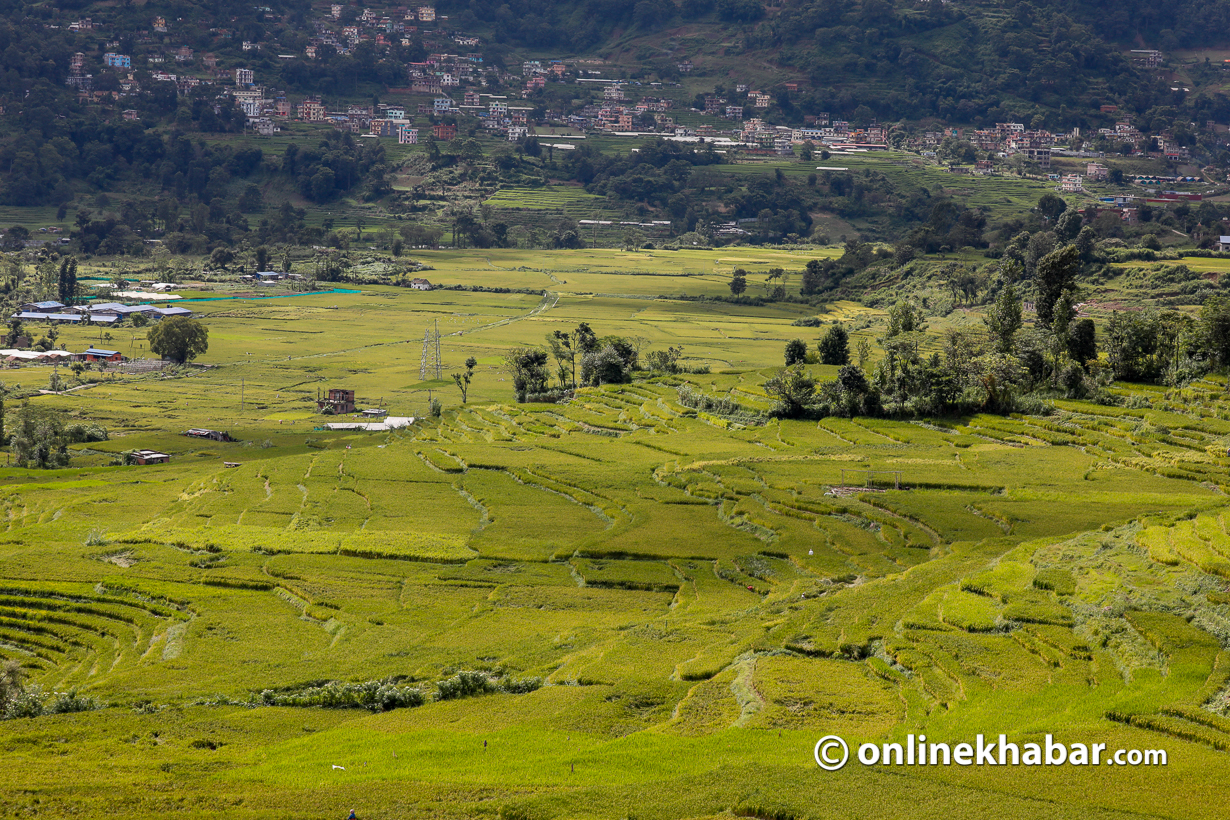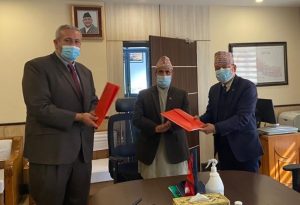While infrastructural development was a focus of the world after the industrial revolution, environment preservation and promotion have taken the centre stage for the last two decades. With the concerns of climate change, many national and international efforts have been made for the conservation of biodiversity, water resources and the overall environment.
But, environmental conservation requires money as suggested by the theme of Earth Day, 2022. While Nepal is focusing on development projects a lot lately, the more pressing issue seems to be environmental conservation, which is often sidelined. But does conservation, though necessary, have enough budget to go on in Nepal? Stakeholders say neither the government nor the private sector has generated enough investments, and it is everyone’s duty to correct the problem.
Insufficient investment

If you analyse the government’s allocation to the environmental conservation sector over the year, the Nepal government’s investment appears to be on the rise. This fiscal year, Rs 11.72 billion has been allocated for projects under 25 subtopics, informs Prakash Thapa, the information officer for the Ministry of Forests and Environment. But, like in other sectors, the budget spending rate is quite low in environmental conservation also, with only 42 per cent spent in the first nine months.
While the budget seems to be increasing, stakeholders complain the federal government has not prioritised environmental conservation.
“It is a problem not just nationally but internationally even though the issues of the environment along with Sustainable Development Goals 2030 commitments have been highlighted a lot. And the budget is decreasing too,” says Prabhu Budhathoki, a former National Planning Commission member.
Forest and environment expert Budhathoki adds, “According to the NPC’s analysis report of the SDG and Nepal’s commitment, it was concluded that Nepal needed Rs 18 billion more annually to be able to achieve the goals. Similarly, about Rs 2 to 3 billion more is needed for Nepal to work on two SDG goals related to environmental conservation.”
Investment and intervention from I/NGOs are also limited, he says.
Water conservation activist Prakash Amatya also agrees. “There is insufficient understanding of environmental conservation and protection among the government instruments. There is a huge investment in the Melamchi drinking water project and building the tunnel for inter-basin transfer of the water resources from one valley to another, but there’s no concrete plan to conserve the natural water environment in Kathmandu Valley.”
“We haven’t been able to work on minimising impacts of air pollution, waste management, land use and plastics use,” says Amatya, stressing it is time for action.
Deviated priorities

The investment in environmental conservation in Nepal is insufficient because policymakers have not realised the significance of the sector in the national GDP, says Ananta Rama Bhandari, the head of the Forest Programme at the World Wildlife Fund Nepal.
“The valuation of forests is being limited to timber and fuel [firewood], but according to a study, we gain two-thirds of the benefits from the forest, indirectly. We are yet to make the policymakers realise the prospects of environmental conservation.”
Budhathoki remembers that in the fiscal year 2016/17, the government had allocated Rs 22 billion for the forest and environment sectors. “When the budget has decreased to half now, it does indicate that the priorities have changed.”
Behind the lack of or a fall in investment in environmental conservation, stakeholders primarily hold the government responsible. “In addition, it may also be because of the recent pandemic that redirected the money from different sectors to facilitate and invest in the health sector,” says Bhandari.
International budget and aid that Nepal gets also got redirected for the same. The pandemic and its effects may have downsized the offices and many have been shut down, causing the budget to slash more, adds Bhandari.
Role of the stakeholders

However, many people believe this can be looked at as some good news. According to them, the amount allocated by the federal government appears low as some local governments have taken over the role of environmental conservation in their jurisdiction.
Hence, if the budget has to be increased, people from the local level shall take the lead, stakeholders suggest.
“The Ministry of Finance allocates the budget based on the proposals submitted by the departments and ministries, asking for a budget they need. A ceiling for the budget is fixed in around May,” Budhathoki says, suggesting people need to be active throughout the process to secure sufficient investments in the environmental conservation sector.
He says if the respective departments need the budget, they have to work for it. “The decision will also come down to the kind of leadership the department gets and their convincing capabilities.”
“We have to lobby and make the policymakers understand that if we do not make preservation efforts today, development and living will eventually be costlier tomorrow. Once we show that there is a direct and active impact on people’s lives, we can bring about the change with increased public pressure for the government’s proactiveness to work on the matter.”
“We have to ensure that focus is on preservation and maintenance as well as green enterprises and eco-tourism,” he adds.
Meanwhile, pointing to the low expenditure figures Thapa mentioned, Budhathoki says, “If we are only spending half or so of the allocated budget in a fiscal year, it shows that we are incapable of using the resources we have. So we cannot expect the budget to increase if the trend continues. Actually, we can still expect more decreases in the budget.”
Further, WWF’s Bhandari says, “We have to start utilising and maximising creative management of the resources we have. We need to start properly zoning the areas of work and focus on conservation.”
Meanwhile, Budhathoki says, at the individual level, one can reduce carbon footprint and use of fossil fuels. “We have to actively make efforts in favour of the environment and wildlife if we want to ensure their longevity.”
Apart from that, Budhathoki concludes, “Depleting natural resources in Nepal is a global concern. And, being a global concern means global responsibilities. So, we have to call out to the international agencies to help us in protecting our resources.”
























